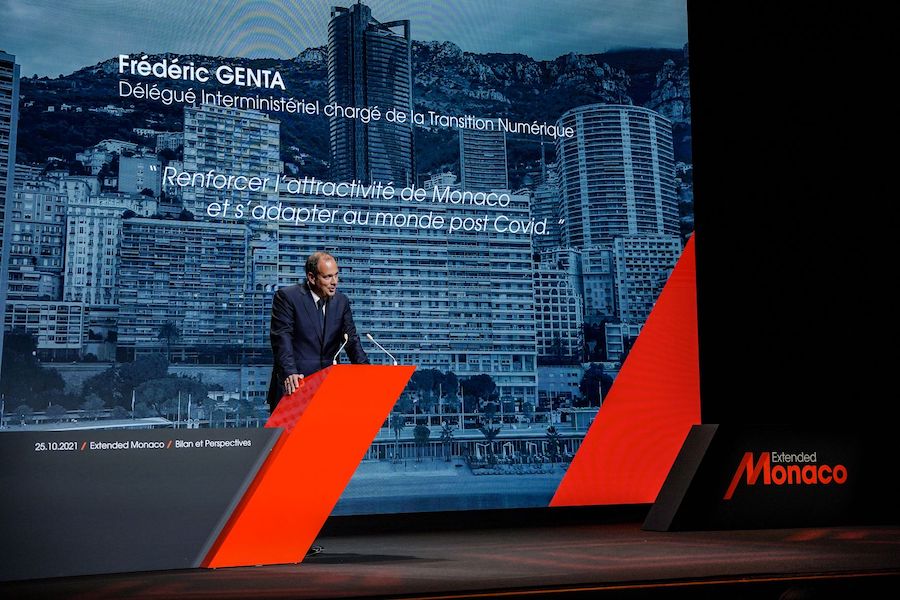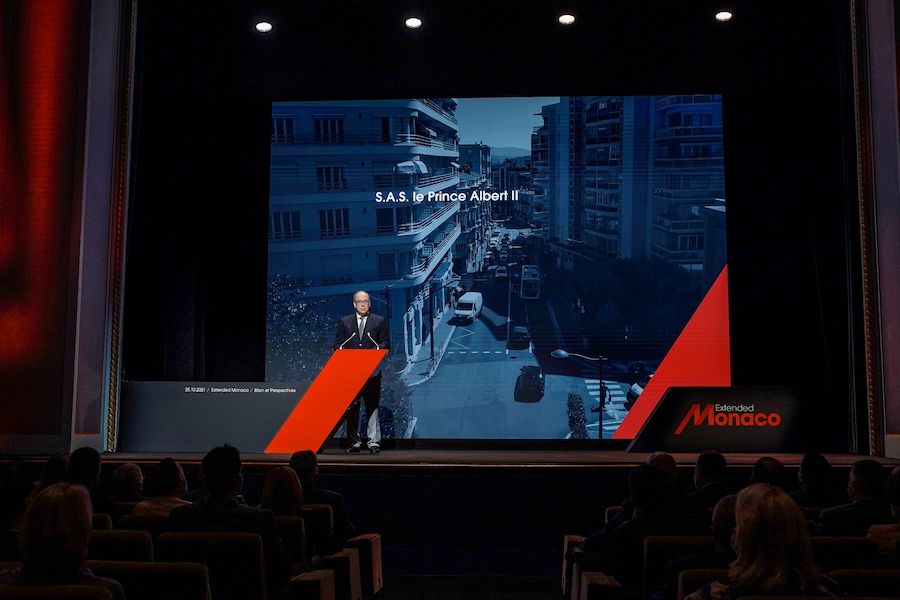In just three short years, Monaco has turned the idea of creating a world-class digital infrastructure in the Principality into a reality. The key players in making this happen have come together to talk about their past successes as well as their future plans.
The Principality has taken several decisive steps under the Extended Monaco banner to make the country future-ready, including the introduction of the 5G network, creating 10G super high-speed fibre connections, creating a digital identity for residents, and being the first in Europe to have its own sovereign state cloud.
The plan, based on the precepts of sovereignty, performance, security and proximity, has aimed to give both the private and public sectors unprecedented access to the latest technology.
It has also put forth a way to promote new tech in the form of the Blue Fund. Launched at the end of 2020 as an economic recovery tool during the darkest days of the pandemic, the fund has backed over 350 digital transformation projects, supported by local service companies in nine out of 10 cases. In human terms, this means that 250 new jobs have or will be created.
A meeting was held on Monday 25th October at the Princess Grace Theatre to outline the whirlwind of activities of the past three years that have marked the initial stages of Monaco’s digital transformation.
Prince Albert II, along with Minister of State Pierre Dartout, President of the National Council Stéphane Valeri, Interministerial Delegate in charge of the Digital Transition Frédéric Genta, and several other top government officials in the nation’s political and economic realm gathered to outline the next steps in the Extended Monaco programme and to applaud the efforts made thus far, despite being in the grip of a global pandemic.
“In less than three years, digital technology has seen spectacular progress for the daily life of Monegasques, residents and commuters,” said Prince Albert. “Our economy has taken the digital turn. The enthusiasm of our companies for our support and recovery measures is proof of the expectations of the Principality’s economic players in this area.”
The country’s lightning-fast transition to a digital framework, says Frédéric Genta, makes Monaco an incredibly attractive option for companies beyond the Principality’s own borders.
“On the strength of its cutting-edge digital infrastructures, the dynamic transformation of its economy, a protective legislative framework vis-à-vis certain intrusive global practices and its ecosystem of investors, the Principality has unique advantages to attract the residents and businesses of tomorrow, not to say today,” he stated proudly.

The pandemic, which potentially could have been disastrous, became an opportunity for Monaco to transition more quickly digitally, and the country took full advantage. Services that were once face-to-face went online, notably the dematerialisation of aid requests for companies, the launch of teleconsultations, the creation of the covid19.mc website and the establishment of solid distance learning and work-at-home programmes.
This, in turn, has given rise to positive changes in many sectors. The education system was able to overhaul its teaching practices, soft mobility options to reduce the carbon footprint were realised, 3D modelling assessments for urban works were created to lessen the impact on residents through noise and dust reduction, and an online portal for doctors and patients was developed making appointments easier as well as giving doctors quicker access to patient files.
This seems to be just the start. Pierre Dartout announced that in the “next few days” a new service called the ‘Digital Single Window’ will be launched. This allows all the administration’s tele-services to be accessed in one place, allowing authentication through digital identities.
“This Digital Single Window will gradually evolve in the coming months,” said the minister of state. “It will naturally be enriched by the new tele-services that will emerge, but also by a safe storing of the electronic documents exchanged with the administration. We will also work to create a ‘tell us once’ service for major life events.”
The new portal is the climax of a project that began in 2019 to streamline the services for end users by offering them round-the-clock and seven-days-a-week access to administrative procedures and forms. A total of 70 procedures have gone paperless including residence permit requests, enrolling in college and high school, submitting an application for civil service jobs, helping the Green Fund or the Blue Fund, and even making payments to school canteens.
The government says it aims to make every procedure dematerialised by the end 2022.
Top photo of Prince Albert II of Monaco by Manuel Vitali/ Government Communication Department
